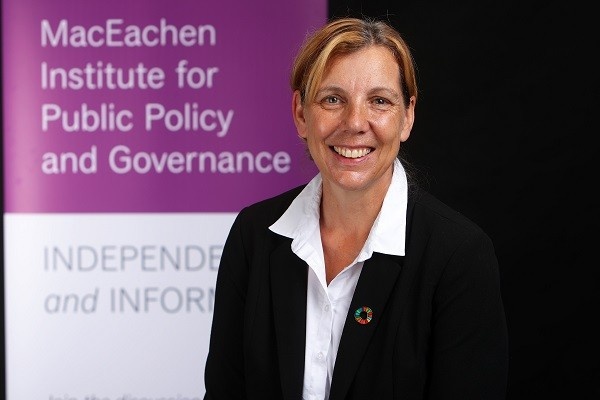Sara Kirk

Dr. Sara Kirk is a Professor of Health Promotion and Scientific Director of the Healthy Populations Institute, at Dalhousie University, Nova Scotia, Canada. She also holds a cross-appointment with Community Health and Epidemiology, an honorary senior scientist position with the Beatrice Hunter Cancer Research Institute, and adjunct faculty status in the Applied Human Nutrition department at Mount Saint Vincent University. Her program of research explores the creation of supportive environments for chronic disease prevention. Her research uses a ‘socio-ecological’ approach that considers how individual behaviours are influenced by other broader factors, such as income, education and societal norms. This includes the role of policy in shaping health. Dr. Kirk was the inaugural recipient of the Dalhousie University Award for Excellence in Graduate Supervision in 2014-2015, recipient of the Faculty of Health Senior Research Excellence award in 2018 and was named one of Optimyz magazine’s top 100 health influencers for 2019.
In her own words
Why does policy matter?
Policy matters because it shapes our lives and governs how a civil society allocates resources. The availability of policies establish accountability for action (or inaction) in a particular sector or setting. My research explores the creation, implementation and impact of healthy public policies, which are typically enacted to create healthier environments for populations and shape healthier social norms but they may not always be implemented as intended or have the desired outcomes.
What do you hope to accomplish during your time as a founding fellow?
I am really looking forward to working with and learning from policy experts across a range of disciplines, to support the priority area of Health Systems and Governance and contribute to greater civic engagement as it relates to healthy public policy. I am also excited to strengthen the relationship between the MacEachen Institute and the Healthy Populations Institute, so as to enhance our collective capacity to support healthy people, healthy communities and healthy populations.
